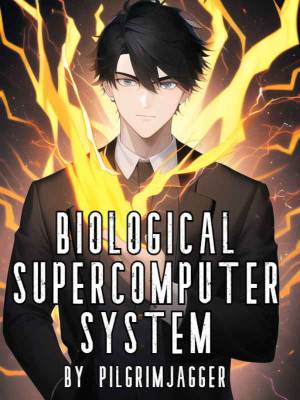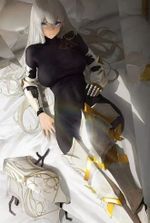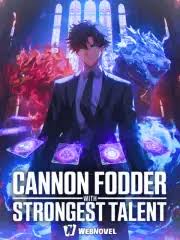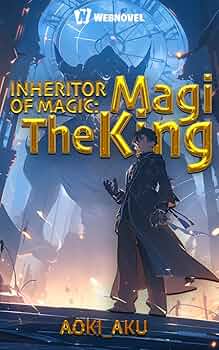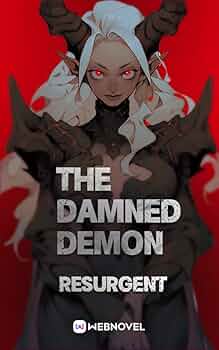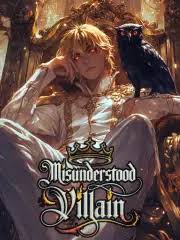The Story in 3 Sentences
A bullied, powerless named Erik endures a life of neglect and abuse in a world where monstrous Thaids have reshaped society around combat strength.
His destiny undergoes a seismic shift when his estranged father, Lucius, returns and implants a mysterious, reality-altering Biological Supercomputer system directly into his brain.
Guided by this alien intelligence and fueled by relentless struggle, Erik ascends from societal outcast to a pivotal force, fighting not just for personal vengeance but for humanity’s very survival against extinction.
Why It Stands Out
1. The Brutal Crucible of Growth
Erik’s journey isn’t a smooth power fantasy; it’s a grueling, often painful evolution. He kills his first human in Chapter 48, a stark marker of the novel’s willingness to plunge its hero into moral and physical darkness. His transformation from a boy who “hadn’t slept in a bed since he was 10” into a guild founder and strategic leader feels earned through sheer, bloody perseverance, making his victories resonate with genuine weight.
2. The System as a Character, Not Just a Tool
The titular Biological Supercomputer is more than a stat-boosting interface; it’s an enigmatic, almost parasitic entity with its own agenda. Its origin, tied to Lucius’s discovery in the Mur continent, hints at a deeper, potentially sinister purpose beyond merely empowering Erik. This ambiguity transforms the system from a simple gameplay mechanic into a central mystery, constantly questioning whether Erik is the master or merely the vessel.
3. A World Built on Broken Scales
The novel constructs its dystopia on the chilling foundation of the Ferebitz and JORM scales, metrics that coldly quantify human worth based on magical fuel and fighting prowess. This systemic dehumanization isn’t just backdrop; it’s the engine driving the plot and the characters’ motivations. Erik’s initial F-rank status isn’t just a weakness—it’s a societal death sentence, making his rebellion against this rigid hierarchy the core thematic conflict.
Characters That Leave a Mark
There’s Lucius Romano – the enigmatic father whose return catalyzes the entire plot. A man of “sharp mind and restless spirit,” he didn’t just bring home a gift; he delivered a world-altering weapon, driven by his own theories about the world’s catastrophic events and the true purpose of the supercomputer as a tool for absolute mana control.
You’ll meet Emily Stone, who stands as one of the rare individuals possessing a coveted Rank X power. Far from being a distant ideal, she falls for Erik “at first sight” at a party, becoming his girlfriend and a crucial pillar of support, her high status contrasting sharply with his origins and highlighting the novel’s themes of defying societal metrics.
And Mira Windwhisper? They’re the one who brings fierce loyalty and elemental prowess to Erik’s side. As a founding member of the Nexthorn Vanguard Guild and another of Erik’s girlfriends, Mira’s ability to manipulate air currents showcases the world’s unique power system, while her moments of “heavy seriousness” reveal the deep personal stakes involved in their shared fight.
The Flaws Fans Debate
The narrative pacing is frequently criticized for splitting focus, with roughly half the story dedicated to Erik’s perspective and the other half to detailed, sometimes tangential, subplots involving other characters, which can disrupt the main thrust of the story.
Despite its name, the “Biological Supercomputer” concept often feels underutilized, with readers noting a distinct lack of technological or computational elements that one would expect from such a system, making the title feel somewhat misleading.
The harem elements, while common in the genre, can feel formulaic to some readers, with romantic developments like Amber’s confession in Chapter 265 sometimes prioritizing trope fulfillment over deep, individual character exploration for the female leads.
Must-Experience Arcs
Ch. 1–50: The Spark of Defiance – This opening arc establishes Erik’s crushing reality as a powerless outcast and the brutal bullying he endures. The inciting incident—Lucius’s return and the system’s implantation—is handled with a chilling, clinical detachment, setting the stage for Erik’s first, desperate acts of survival and his inaugural kill, marking his irreversible step onto a darker path.
Ch. 400–600: Foundations of the Vanguard – Mid-series finds Erik transitioning from lone survivor to a leader. He establishes the Nexthorn Vanguard Guild, navigating complex alliances and internal politics. This arc delves into world-building, exploring different regions like the Lumisgrove and introducing key allies and enemies, solidifying his role as a central figure in the human resistance.
Ch. 1000–1375: The Final Gambit for Survival – The endgame arc throws Erik and his companions into a desperate, large-scale war against the Thaid threat. Facing “Chimaeric Demons” stronger than ever and navigating treacherous enemy territories like the Lorogia region, the stakes are apocalyptic. The focus shifts to grand strategy, sacrifice, and the ultimate test of whether the system and Erik’s growth are enough to prevent humanity’s extinction.
Killer Quotes
“Life in the city, he began, is very different from life in the village. The city is a beast that eats the weak.”
“This is what you get for being a pathetic, weak-minded loser with a useless power! Logan said with an evil grin on his face.”
“No, we can’t afford to stay put. Regardless of the situation, as Emily suggested, it will take us some time to reach the enemy base.”
Cultural Impact
The novel has attracted a readership of over 3 million on WebNovel, indicating a significant, dedicated fanbase despite its niche title.
A dedicated Fandom wiki exists, maintained by fans who meticulously catalog characters like Erik Romano, Lucius, and Mira Windwhisper, along with intricate details about the world’s power systems like the JORM scale, demonstrating deep community engagement.
Readers frequently compare its “Weak to Strong” progression and system mechanics to popular titles like “The Bloodline System” and “Reverend Insanity,” cementing its place within a specific, beloved subgenre of fantasy web novels.
Final Verdict
Start Here If You Want:
A cathartic, underdog story where the weakest link forges himself into an unbreakable chain through sheer grit and a unique power system.
A dark, monster-infested world where societal structures are built on brutal power hierarchies, providing a rich, oppressive backdrop for rebellion.
A long-form epic with over 1375 chapters, offering a sprawling narrative for readers who enjoy getting completely lost in a detailed, evolving world.
Study If You Love:
Analyzing the psychological transformation of a protagonist forced into violence and leadership, examining how trauma shapes his decisions and relationships.
Exploring the thematic tension between biological determinism (the brain crystal scales) and the potential for radical, technology-assisted evolution offered by the supercomputer.
Deconstructing the “system” trope in xianxia/webnovel culture, particularly how this novel subverts or adheres to genre expectations with its more ambiguous, potentially parasitic take on the concept.
Avoid If You Prefer:
Tightly paced, single-POV narratives, as the story frequently branches out into detailed side plots.
Hard science fiction or technologically rigorous interpretations of its “biological supercomputer” premise.
Stories that avoid harem tropes or focus on a single, deeply developed romantic relationship over multiple partners.
